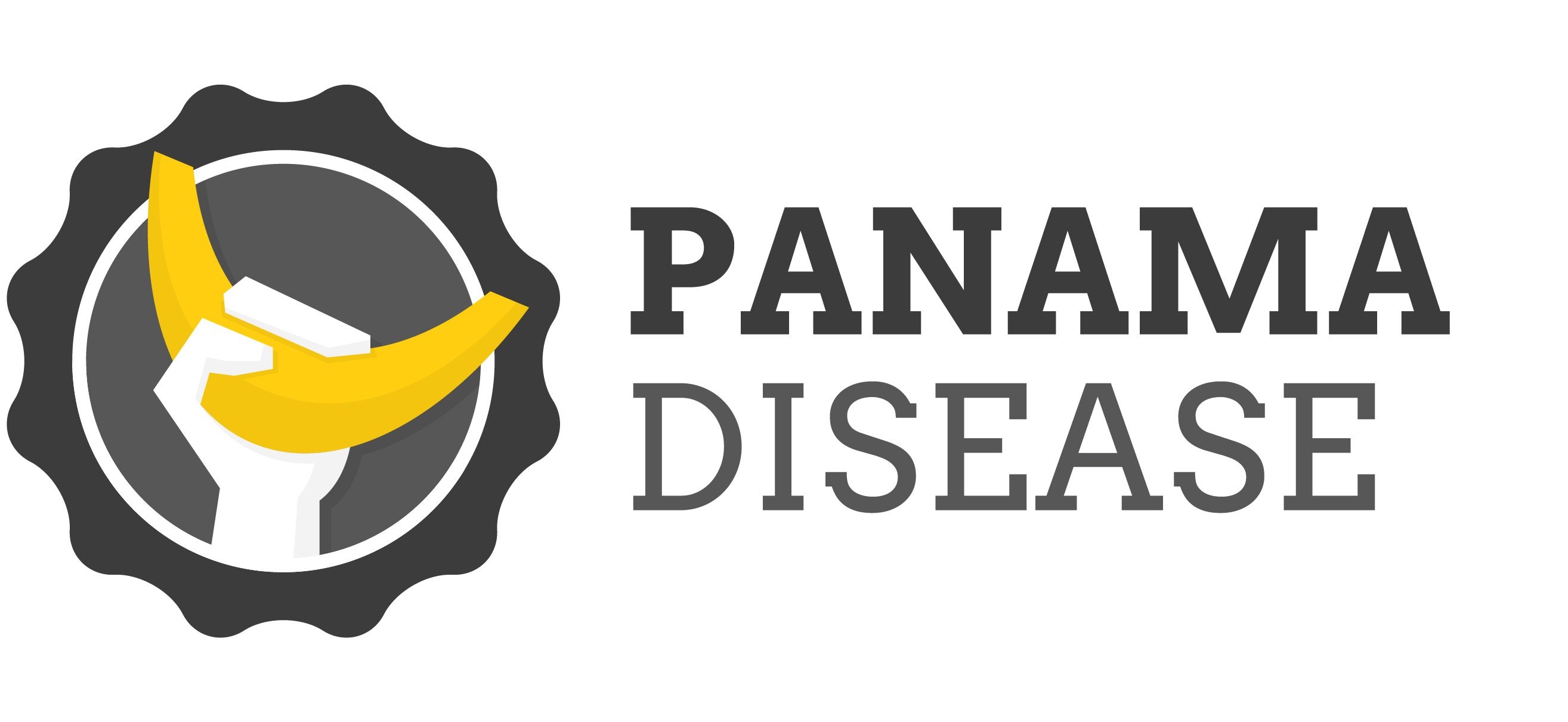Aug 31, 2015 | Expedition, Visit
Finding wild banana accessions infected with Fusarium oxysporum f.sp. cubense (Foc) causing Fusarium wilt of Panama disease in the tropical rain forest. That’s the goal of the second expedition PhD student Nani Maryani Martawi is conducting now in the Eastern Indonesian islands Papua, Sulawesi and Flores.
Maryani: After my first expedition last summer in Borneo and Java, I am now again in Indonesia for a second expedition on the Eastern part of my home country. During this expedition, I collect together with other experts banana corms and leaves from banana plants infected with Panama disease, that stand in the outer circle of the rain forest. We will take soil samples as well.
DNA analysis
When I am back at Wageningen University, I will analyse the samples in order to extend our understanding of the genome diversity of Fusarium in banana. We expect a huge diversity since the host and pathogen originate both from this region. With this information we will better understand the current Fusarium epidemic that is largely driven by TR4 strains. Moreover, it is extremely useful to have a clear picture of the overall Foc diversity and its pathogenic potential.
Genome-wide diversity of Banana and Panama disease
Maryani started almost two years ago with her PhD that is part of the Scientific Program between Indonesia and The Netherlands (SPIN), funded by the Royal Netherlands Academy of Arts and Sciences (KNAW).
Feel free to contact Nani about her PhD project.
On the picture: Maryani and others joining the expedition holding a banana pseudostem infected with Panama disease.
Back to News page
Aug 31, 2015 | Meeting, Visit
Fernando García, PhD student at Wageningen University and Research centre, visited the city of Santa Marta in Colombia as a representative of the banana research team of Wageningen UR.AUGURA, the national banana producer organization of Colombia, invited him from August 12-14 to join a conference with the banana sector and discuss the ongoing banana research, particularly with respect to Panama disease.
The meeting was framed into the “V reunión técnica banenera de Colombia” (the 5th Technical banana meeting of Colombia). In this meeting several national and international institutions/companies gave an update about the situation of the banana industry in Colombia including the current situation with regard the menace of the Tropical Race 4 of Fusarium oxysporum f.sp. cubense (TR4).
The recent outbreaks of TR4 in Mozambique, Pakistan, Lebanon, and Australia and the frequent visits of banana producers and service providers to this area as well as other interactions between various banana stakeholders in banana producing regions that are affected by TR4 prompted AUGURA to include the issue of Panama disease in the technical and academic meeting to address the current situation in Colombia and to foster discussion and alertness.
Overtime the banana research team, under de leadership of Gert Kema, established links with AUGURA, Corporation for Biology Research(CIB) and National University of Colombia campus Medellin (UNAL-Med) that all participate in the INREF project and were, along withSolidaridad, present in the meeting.
Contact Fernando García.
Back to News page
Aug 17, 2015 | Meeting
At the beginning of August, Gert Kema was invited to kick-off a special session titled “Banana Production at the Crossroad: Impact of Fusarium oxysporum f.sp. cubense TR4” at the annual meeting of the American Phytopathological Society. He spoke about detection, identification, and the epidemiology of Fusarium oxysporum f.sp. cubense, tropical race 4. Other speakers included Dr. Gus Molina, Bioversity International and Prof. Randy Ploetz, University of Florida. The same day, Nadia Ordonez, PhD candidate at Wageningen University, gave a presentation about the development of a molecular diagnostic for Panama disease.
Want to know more about their presentations? Feel free to contact Kema or Ordonez.
Back to News page
Aug 17, 2015 | Publications
Maricar Salacinas, PhD student at Wageningen UR, works since two years on the understanding of the dissemination of Panama disease (or TR4) and the efficacy of current methodologies that are used to prevent further spreading of TR4 in the Philippines.
Salacinas: “In the last two years, my work concentrated on the analyses of numerous soil samples addressing the epidemiology of TR4 in Mindanao (Philippines). I collected soil samples from Lakatan banana fields (local banana cultivar), and from various locations in the lowlands and highlands after a range of management practices including isolation and rice-hull burning. Last months, I was at Wageningen UR to analyse the soil samples. Now I am back in the Philippines to further study the efficacy of sanitation, disinfection, and the potential of soil disinfestation. Furthermore to determine the viability of fungi spores at different soil depths.”
Later Salacinas will work in Wageningen on the validation of resistance to TR4 in a selected group of banana varieties. This will be conducted in close collaboration with Fernando Garcia, another PhD student in the INREF program.
Want to know more about the research activities of Salacinas? You can contact her via email.
On the photo: A with Panama disease infected area on a banana farm in Mindanao, Philippines.
Back to News page

Recent Comments